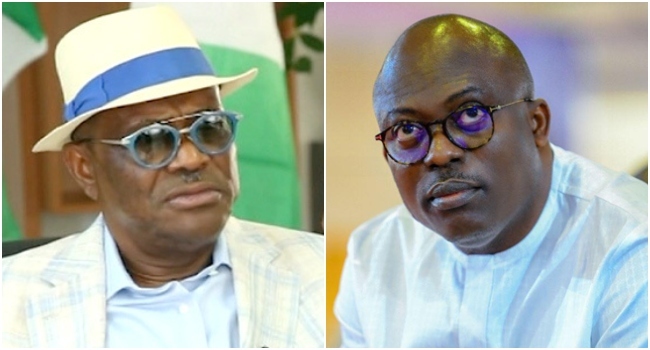The political crisis in Rivers State remains unresolved as certain individuals, driven by personal gain, are preventing reconciliation between FCT Minister Nyesom Wike and Governor Siminalayi Fubara, according to Ken Robinson, National Publicity Secretary of the Pan Niger Delta Forum (PANDEF).
Robinson explained that ongoing attempts to resolve the rift between Wike and Fubara have been unsuccessful, largely due to entrenched interests. The two political heavyweights have been locked in a battle for supremacy, plunging the oil-rich state into a protracted political standoff.
Efforts by President Bola Tinubu to mediate peace have so far yielded no results, with both parties refusing to compromise. The crisis has also divided the Rivers State House of Assembly into two factions, each loyal to either Wike or Fubara, with separate Speakers leading the rival camps.
Robinson expressed regret over the role political leaders are playing in the crisis, stating that many have failed to take a neutral stance.
“The truth is, some of us in PANDEF hold different views, but the national leader of PANDEF, Chief Edwin Clark, has already spoken on the matter. We initially hoped to mediate between both parties, but the situation has worsened, and people have now taken sides, making resolution more difficult,” he said.
Robinson pointed out that the rich resources of Rivers State have made it a hotbed for competing interests. “It’s all about personal interest—those for and against the governor are pursuing their own agendas. Unfortunately, this has dragged the state into further crisis,” he added.
Reflecting on the 24 years of democracy in Rivers State, Robinson lamented that it has been one of the most politically volatile states in Nigeria. From the tenure of former Governor Peter Odili to the present, political strife has hindered development in the state.
“We had hoped that in the interest of the state, national leaders would adopt a neutral approach and encourage peace. But both the FCT Minister and the Governor have dug in their heels, with external groups fanning the flames to benefit from the discord,” Robinson said.
Looking ahead, he warned that the crisis could persist until the 2027 elections when Governor Fubara is likely to seek re-election. “The way things are now, the only real solution might come from who emerges victorious in 2027. The conflict is likely to continue in different forms until then.”
Addressing concerns that the crisis could stifle governance and development, Robinson acknowledged the impact but emphasized that “every action has consequences.”
He also traced the history of disunity in the Niger Delta to political interference, recalling how previous attempts to form a united regional body, such as the South-South Peoples Assembly, were derailed by internal divisions.
Drawing on past experiences, Robinson urged Niger Delta leaders to adopt a more neutral stance in the Rivers crisis, stating that PANDEF’s reluctance to take a firm position reflects the complex dynamics at play.
“Chief Clark, as our national leader, has made statements in his capacity as a respected elder statesman, and PANDEF will not contradict his position,” he concluded.




